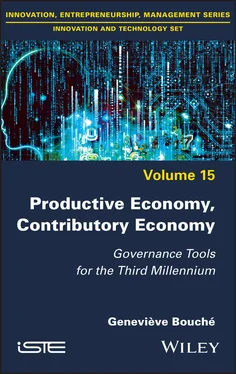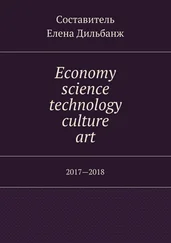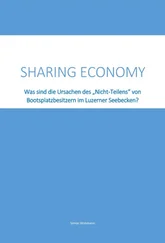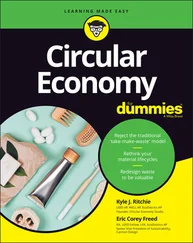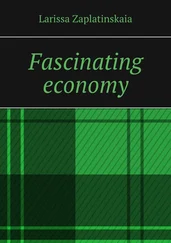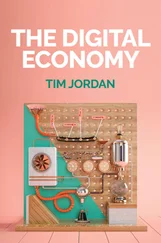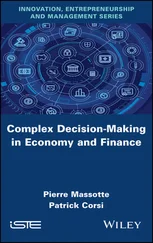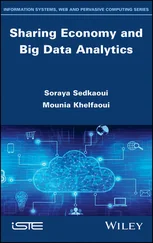1.1.4. Going through “a good war”?
That is what my grandmother, who has been through the war, used to say whenever she thought her children and grandchildren were irresponsible consumerists.
That is also what she said when industrial relocations multiplied on the grounds that low-cost countries were willing to sacrifice themselves for our benefit.
At the moment, we do not have a world war, but we do have climatic and geological changes, as well as pandemics. Everyone starts to think, and this brings out certain realities:
– what makes us strong: cohesion, which allows us to be more reactive and combative than egoism;
– our weaknesses: our organizations. Too focused on financial efficiency, our organizations have become very fragile. Too legally protected, they have become blocking.
And then the social and environmental reality shows us that:
– we produce poorly;
– we consume poorly.
We already know all this. The question is how to make sure that we take it into account in the way we develop our life together.
Thousands of researchers, from various disciplines, are working on these subjects, especially economists. They work in laboratories, others in trade unions, Masonic lodges, churches or in informal circles.
As far as the findings are concerned, they are quite convergent, but regarding solutions, there is little that is concrete. This is reflected in the 17 SDGs (see section 4.6.2)!
As is often the case in periods of profound change, it is not within institutions that creative proposals are drawn up, but outside of them, in places designed to unleash serendipity. These are in particular in think tanks.
The path that is developed here is the result of the compilation of work by a number of them, including the “sustainable development” working group of the Conseil de l’Ordre des experts-comptables . The work carried out in this forum indirectly contributed to the creation of the Institute for the Circular Economy. Other important sources include the Atena Forum, which focuses on digital sovereignty; Orée, which brings together the concerns of sustainable development professionals; FAIR ( Forum des autres indicateurs de richesse , Forum for Alternative Wealth Indicators) and the Fabrique du Futur , which, as its name suggests, imagines the opportunities of the future.
1.1.5. Expanding our field of certainty
We are in a situation comparable to that of physicists in the last century: in order to move forward, they had to decide to listen to the inventors of quantum physics, which turned their way of thinking upside down and opened up new horizons.
Physicists had to make a great effort to get out of their certainties. But the rewards have been immense if you look at all the progress that has followed this acceptance.
Economists, sociologists and all the specialists called upon to think about the “next world” must now agree to thoroughly overhaul their ways of thinking and the theories on which we have based our respective sciences.
At least those who can, because the exercise requires a specific intellectual capacity: there are discoverers, testersand developers. They are all useful, but the ones who will play an important role will be the disclosers, those who understand and put the concepts into simple words with convincing examples. This last step alone will take time! About two generations (60 years).
But do we have that time? The damage to the planet is more worrying every day, and the fragility of our social and economic system is not reassuring. Hence, there will never be enough of us to cross our points of view and approaches to solutions.
In Europe, we have got where we are because of our Cartesian mindset, which has taught us to segment problems and deal with them piece by piece. To move forward, we need to take the opposite approach: to consider that not only is our environment a whole but also that it is in constant motion. Every parameter that moves has an impact on the whole. This is the systemic or, more precisely, cybernetic effect. This leads us to adopt new methodological approaches.
This book proposes a particular approach to interpreting the coming world. It is based on two principles, typical of cybernetic futurology:
– the dynamics of facts: the evolution of life on earth is a continuous process and more coherent than it seems. The orientation of this evolution goes from matter to spirituality. It advances in a trial and error mode. Humans are not above the rest of the living world, but included in the whole of living matter, which itself is backed by the mineral and dynamics of the cosmos. The dynamics that drive the whole thing forward are strewn with events that we tend to call unforeseen. But resituated in the long term, there is nothing unforeseeable about them for those who reason in the “meaning of life” mode;
– the mechanism of homeostasis: when the environment changes significantly, and although it seems dangerous to adapt, it nevertheless becomes preferable to try to evolve. In such circumstances, living beings deviate from their path to continue evolving.
Currently, the question is not so much the survival of our species 3as the opportunity to move towards a better world for us within Gaia.
We will take a look at the social, economic and environmental components that are currently undergoing the most torsion, focusing on the dynamics of these torsions and their interrelationships.
The aim is to open up the field of possibilities for a new socio-economic approach, developed independently of the dogmas of the great economic thinkers of the 19th and 20th centuries.
1.2. Change seen from afar to better understand it
1.2.1. Being an actor in our own novel
The purpose of this book is to outline the dynamics of the change we are experiencing.
The aim is to detect the levers of progress and the opportunities that present themselves to us.
The causes of the breakdown of the current model are multiple. They combine to impose new situations on us which, in turn, require social and economic innovations in addition to the technological responses that we are working hard on.
To clarify our current vision and to understand the “mechanical” choices 4that will be made by the people, at least if we are not careful, we will go back a long way in time. For, in order to understand what we are going to decide, we need to get an idea of the thought process that led our elders in their decision-making processes and brought us to where we are today.
Understanding the decision-making processes of our elders and neighbors gives us an advantage, because it is in times of movement that opportunities are to be seized. We need to move while the existing system is distorting, bordering on fracture. We must even accompany this dynamic so that it goes in the right direction. We must move quickly and fairly, because once the n + 1 system is in place, it becomes very difficult to get it to move again.
Europe dominated the world for 500 years and then fell into a state of weakness in the last century. Nevertheless, it remains a corner of the planet that has many advantages and a long history on a land that has accumulated a great deal of knowledge. In Europe, Neanderthals, followed by Sapiens, have been trying to create a society for over 300,000 years 5!
European maturity is neither the Asian maturity, which is part of the Homo erectus continuum, nor the American maturity, nor that of any country in the southern hemisphere. All these geographical areas are living their history in parallel.
Читать дальше
